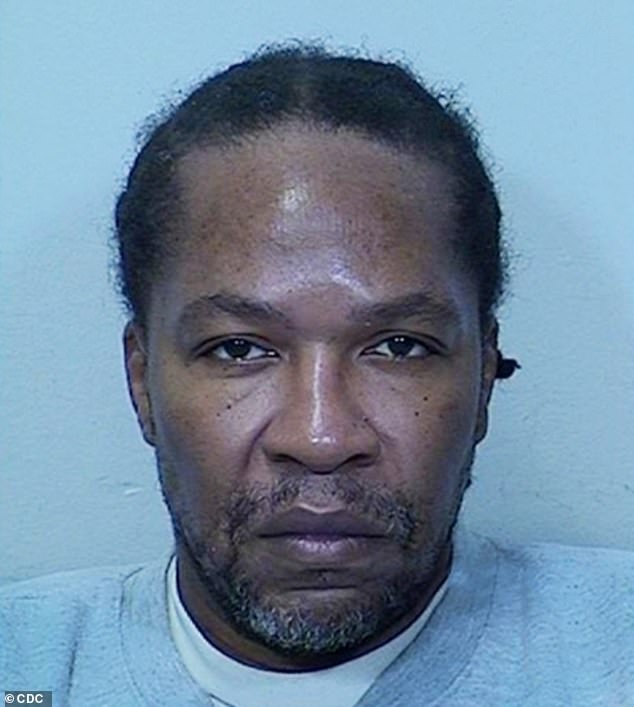A former prison psychologist has revealed how ‘transgender’ detainee Tremaine Carroll should never have been moved to a women’s prison, where two inmates say he raped them.
Carroll faces trial for the alleged double rape at the Central California Facility for Women (CCWF), where he was transferred in August 2021, after telling officials that he was trans and did not pose a risk to women.
Now, in a sensational interview, one of Carroll’s former psychologists has described how the 51-year-old relentlessly games the prison system for his own benefit and should not have been moved.
Dr. Jack Miller says Carroll’s case exposes deep flaws in a correctional system that puts too much power in the hands of cunning inmates.
The California law that in 2021 allowed men to say they were trans and ask to serve their sentence in a women’s lockup is just another example of a broken system, Miller says.
Trans detainee Tremaine Carroll, 51, allegedly raped two women in a women’s prison before being sent back to a men-only lockup.
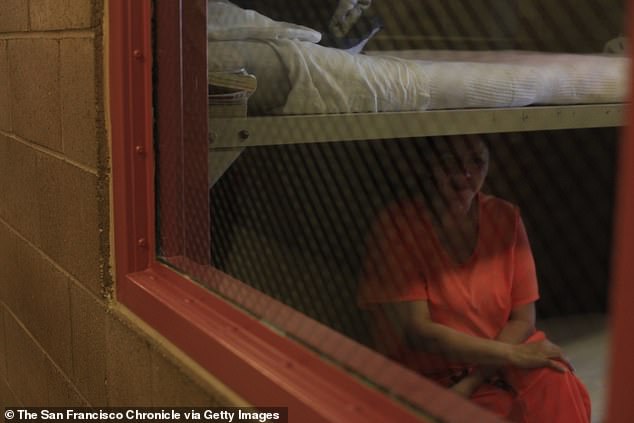
Detainees at the Central California Facility for Women (CCWF) say life changed after trans inmates were allowed to move there.
It’s a stunning allegation from an expert that raises tough questions for Democratic Gov. Gavin Newsom and the progressives who supported Senate Bill 132, as it is known.
Miller’s revelations show the risks of allowing intact biological men, including sex offenders, to live, sleep and shower in dormitories with women.
Carroll was “one of the 10 biggest headaches” among the 96,000 people in custody of the California Department of Corrections and Rehabilitation (CDCR), he says.
He’s one of the “really frequent travelers… constantly going from one institution to another, constantly seeking a higher level of care,” Miller says, using an alias to protect his identity.
Miller had about a dozen sessions with Carroll, in the years before he came out as trans.
He was never interested in counseling, Miller says. Appointments were always a ‘vehicle to do something else’.
Scheming detainees gamed the system in search of better conditions, including transfers to more comfortable prisons with tastier meals and looser rules, he says.
Carroll also feigned disabilities to obtain “preferential or special treatment,” he claims.
“That included pretty much any disability that someone could put on a vest for, get a wheelchair or get a cane for,” Miller says.
“This person had them all.”
Carroll was soon moved to a different facility and his sessions with Miller ended.
Upon learning of the double rape allegations against Carroll last month, Miller says she wasn’t surprised.
His reaction was, “Sarcastically, ‘What a surprise,'” he says.
Miller is not aware of Carroll’s trans transfer request, but says his history of gaming the system was a red flag that was overlooked.
“I am absolutely shocked that other psychologists have approved her transfer to a women’s prison,” he told DailyMail.com.
Carroll is due back in Madera Superior Court for a preliminary hearing on July 8.
She is 6 feet 2 inches tall, weighs 200 pounds and presents as a man, with facial hair and has not undergone sex reassignment treatments.
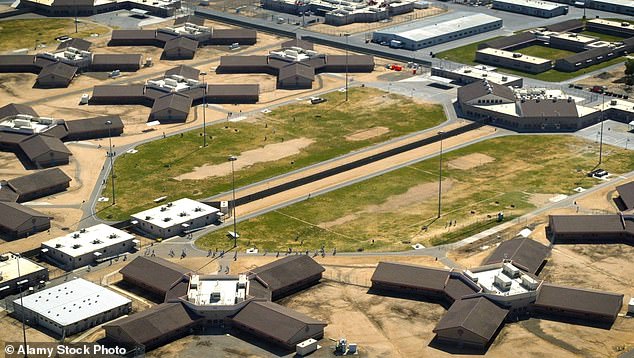
CCWF’s sprawling complex in Chowchilla has been dogged by allegations of sexual violence in its cells for years.
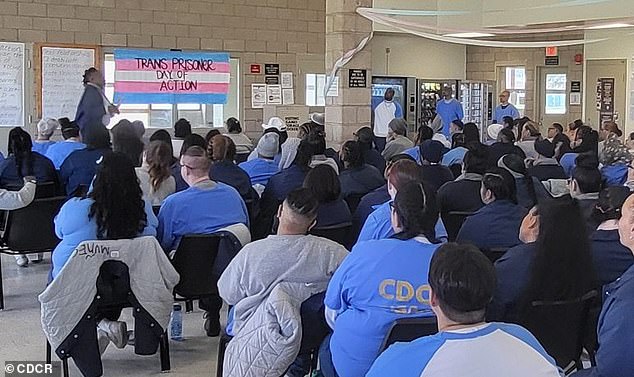
CCWF detainees and staff held a “day of action” for trans prisoners in January.
He is serving a sentence of 25 years to life under California’s three-strikes laws for repeat offenders.
One of his first convictions, for two counts of kidnapping, involved Carroll and other men breaking into an apartment occupied by two women.
The victims were sexually assaulted and forced to “orally copulate,” court documents show.
Despite the incident, he was transferred to the Chowchilla Women’s Detention Center in central California.
Since then, two inmates at the women’s facility have alleged that Carroll overpowered and raped them.
One of them, a petite woman in her thirties, says Carroll forcibly entered her in the shower of the eight-room dormitory they shared.
She was traumatized by the attack and relives the ordeal every time she showers, when her heart pounds in her chest, she says.
The women have not been identified.
Carroll pleaded not guilty to two counts of rape and one count of dissuading a witness from testifying.
Miller says the double rape allegations are a wake-up call for a broken system.
‘If he is guilty of this, who is going to atone for that?’ Miller says.
‘What are they going to do to change it? And are they going to change the risk assessment process? Because now they are creating new victims.”
Miller recalls how detainees in California quickly realized the potential of SB132.
To apply, detainees only have to profess their identity.
There is no need to take cross hormones or undergo surgery.
Applications are reviewed by a warden, guards, medical and mental health staff, and a prison rape expert.
Some inmates had identified as trans and had taken hormones for years before requesting a transfer, Miller says.

Democratic California Governor Gavin Newsom signed the transgender prison bill into law in September 2020.
But the law also opened the door to inmates like Carroll who gamed the system, he says.
For them, the benefits were obvious: life in women’s prisons is more comfortable than in violence-plagued men’s facilities.
They also offer dates and sexual encounters with women.
Male detainees often came out as trans for other reasons, Miller says.
Trans inmates in male prisons could request “frisk” searches from female guards, rather than men.
Some requested them for sexual gratification, Miller says.
Others wanted to make searches more difficult to organize, so that it would be easier to move drugs or other contraband around the cellblocks, he adds.
It describes a “transgender contagion” after the passage of SB132 and “how quickly word spread about the benefits of claiming this trans status.”
Still, it was just the latest case of politicians rolling the dice in favor of inmates, he says.
Rules introduced to make detainees safer often created mechanisms that could be abused, he says.
Mental health protocols introduced in the 1990s allowed clever detainees to say they were suicidal to initiate processes that could provide them with more comfortable accommodations, Miller says.
Carroll and other detainees could exhaust corrections officials with requests and paperwork until they got their way, he says.
When they were denied, the inmates sued the department, which would normally settle, Miller says.
“This way it’s cheaper and less of a headache,” he says.
Throughout the interview, Miller carefully avoided revealing Carroll’s medical records, which are private and protected.
He only talked about what is widely known among prison staff.
After the rape allegations, Carroll was transferred in April to Kern Valley State Prison, a notoriously violent facility for men in central California.
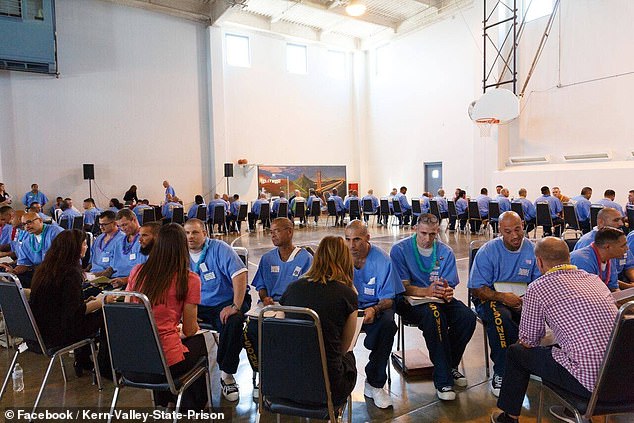
Trans detainee Tremaine Carroll is back in an all-male facility, Kern Valley Maximum Security State Prison.
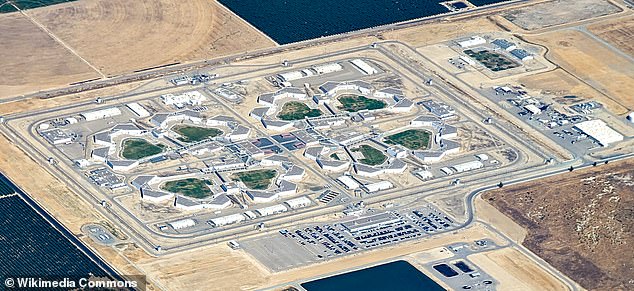
Kern Valley State Prison is plagued by violence, including a playground stabbing death in April.
There, Carroll “lives in fear” of “retaliation” from the guards, says his lawyer Joe Goethals.
Records show he has been transferred 79 times since entering the system in March 1991.
One of his transfer requests was ordered by a federal court, despite CDCR’s objections, department spokeswoman Terri Hardy said.
He has been found guilty of 18 serious rule violations while inside.
California state facilities house 1,997 trans and non-binary detainees.
Some 345 inmates from men’s prisons have requested to be transferred to women’s prisons.
Of them, 46 were approved, 64 were denied and 87 inmates changed their minds. The rest is under review.
Only 16 inmates from women’s prisons have requested transfers; three have been approved.
The CDCR says it reviews applications carefully and only approves them when it is “safe to do so.”
The Transgender Law Center, the ACLU and other groups say trans detainees are most often victims of abuse and deserve protection.
Allowing them to serve their sentences in prisons that match their gender identity makes them safer, advocates say.
But women’s rights groups warn of rising incidents of rape and other horrors in what were once women-only wards.
Sharon Byrne, director of the Women’s Liberation Front, says SB 132 makes it too easy for any male convicts seeking access to women or a way out of violence-plagued male prisons.
“Any man serving a sentence for violent assault, rape or crime in a men’s prison sees an open door to easily enter a women’s prison,” Byrne says.
‘Who’s not going to take advantage of that?’


